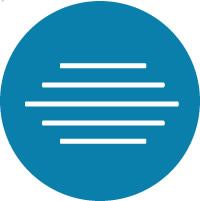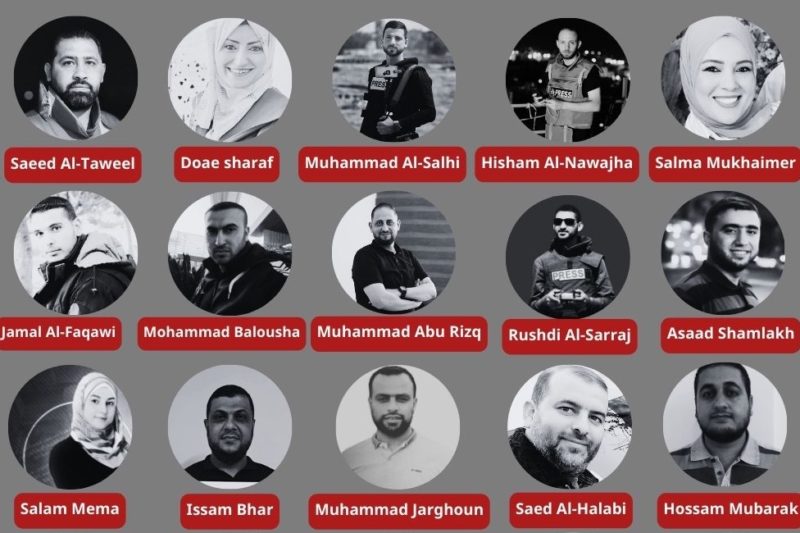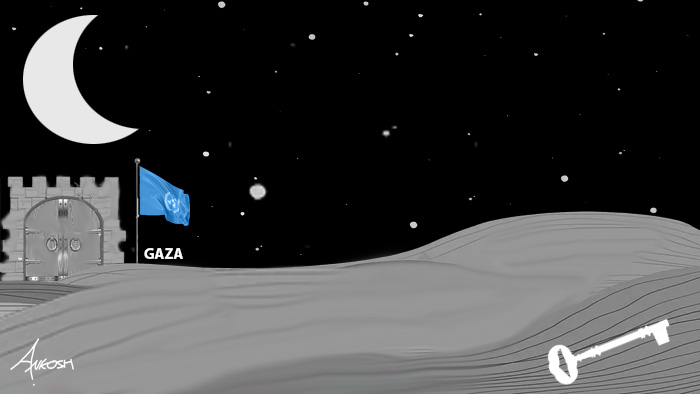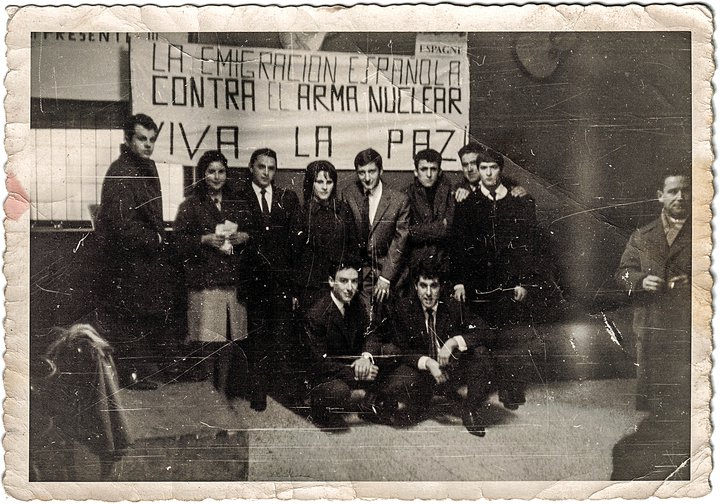Eye on Palestine Festival tours the streets of Belgium
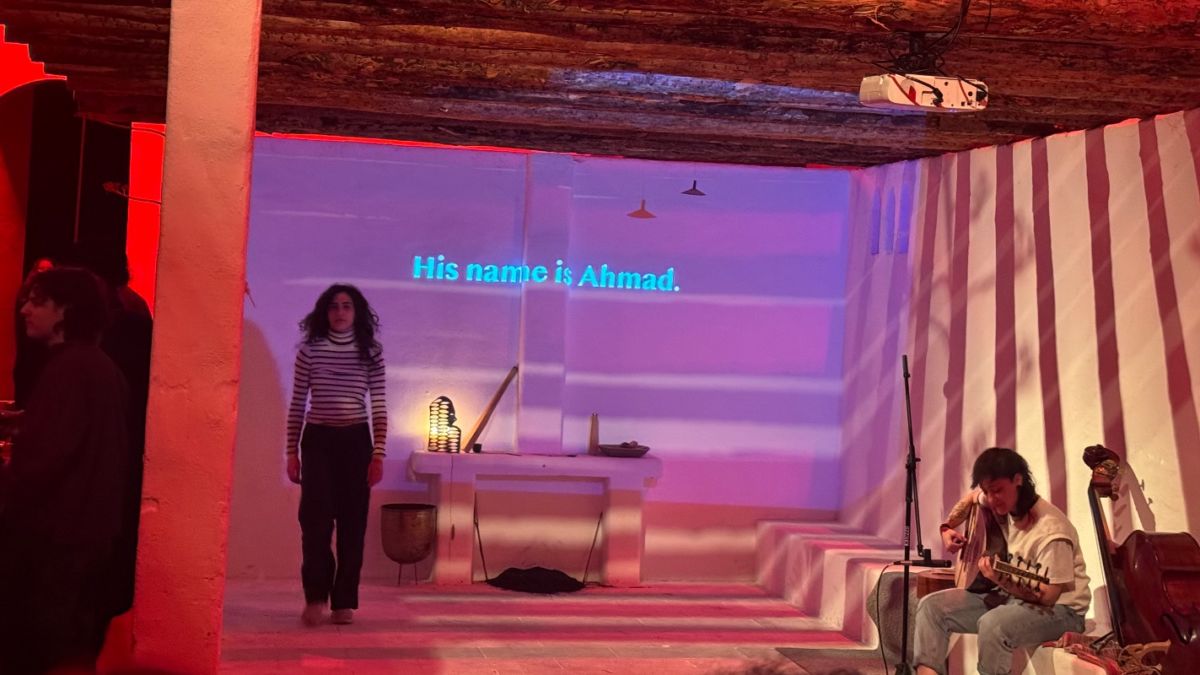
Through films, lectures, discussions, concerts, theater, and exhibitions, the festival in Ghent offers insights into Palestinian life and resistance against occupation, colonialism, and apartheid.
The Eye on Palestine Festival in Ghent, Belgium, began on November 21 and will continue until December 20. This multidisciplinary arts festival celebrates Palestinian culture by showcasing the works of Palestinian and international artists, writers, musicians, and activists. Through films, lectures, discussions, concerts, theater, and exhibitions, the festival offers insights into Palestinian life and resistance against occupation, colonialism, and apartheid.
“This year’s program focuses on the impact of Israeli occupation in the West Bank and the genocide in Gaza.”
Amani El Haddad, the content coordinator of the Ghent Arts Platform (Gents Kunstenoverleg, GKO), remarked, “this year’s program focuses on the impact of Israeli occupation in the West Bank and the genocide in Gaza. It examines how these realities affect Palestinian artists and cultural organizations. By amplifying their voices and showcasing their art, the festival fosters cultural exchange, solidarity, and support for Palestinian rights and heritage.”
El Haddad added, “The festival’s opening was held at the Palestine Café in the Shopping Center Zuid on November 21. The Palestine Café in Ghent is a nomadic community space for the Palestinian community. It serves as a place for healing and dialogue, organizing meetings, film screenings, workshops, and collaborative art projects, such as embroidering the names of Palestinian victims in partnership with Manoeuvre. The café, hosted in the Ghent Zuid Shopping Mall, is the central hub for over 50 sessions happening across various venues in Ghent.”

Amani, one of the founders of the Palestine Café, noted, “most participants in the festival are Palestinian artists, writers, musicians, and activists. Some have lived abroad for years, in places like Europe and Lebanon, while others have recently left Gaza due to the escalating situation. Given the challenges posed by the occupation, we also host online sessions with Palestinian artists residing in Palestine.”
“Our aim is to amplify their voices, foster cultural exchange, and celebrate Palestinian heritage. Beyond showcasing art, the festival serves as a meeting point for the Palestinian community in Ghent and beyond, instilling pride in Palestine’s rich culture and heritage.”
She highlighted, “Eye on Palestine began a few years ago in Ghent, and this year, we revived it in response to the atrocities in Gaza. In addition to advocating for Palestinian rights, freedom, and a ceasefire, we also collect donations for Palestinian organizations. This year’s festival features unique artwork by Kinda Ghannoum, printed by the Ghent-based organization Topo Copy. The collection of 21 A3 RISO prints forms a powerful whole, allowing buyers to create their own compositions. Proceeds support the Ghassan Abu Sittah Children’s Fund and World Central Kitchen, providing essential aid to Palestinian families.”
Celebrating culture through food and art
Nour Al-Nunu, a 40-year-old Palestinian chef from Gaza who has lived in Belgium for six years, is participating in the festival for the first time. Nour uses traditional Palestinian cuisine to preserve and share her heritage. Her workshops, held in collaboration with institutions across Belgium (Antwerp, Ghent) , and the Netherlands (Amsterdam ,Rotterdam) where she runs specialized workshops that are not limited to cooking and teaching sweets only, but also include a part of the Palestinian dabke and exchanging dialogue about the history of each dish or type of sweets combine cooking with dialogue about the cultural significance of each dish.

During the festival, Nour will demonstrate how to prepare traditional Palestinian sweets like Kunafa and Aish Al-Saraya. She has also introduced a unique twist with Mango Kunafa, blending Palestinian and Belgian flavors, which has garnered significant popularity,which made it famous by its name, Nour believes food serves as a cultural bridge,as anyone can learn about a country’s culture through its food. enabling people to connect with Palestine’s rich heritage.
Nour says, “i have found great demand recently, especially with the increase in support for Palestine after the war on Gaza.” Therefore, Nour exploited this field due to the great demand for it, and she wants to continue this work, in which Belgians and people from Western countries such as Italy and Spain participate in her workshops.
Hatta and Ajal
Palestinian artist Mohammad Quraiqa, 24-year, who was born in Gaza City and now lives in Belgium, shared, “participating in the Eye on Palestine Festival symbolizes our existence as Palestinians in Belgium. Because we are unable to provide aid to our people in Gaza, we are trying to provide something through art. We remind the world of the Palestinian cause. We are trying to intensify the drawings about Palestine and draw them everywhere and on every wall. My work features the iconic image of “Hatta and Ajal”,’which is based on the iconic triangle of Palestine, and contains a well-known Palestinian figure, the old grandfather, and a tribute to the people displaced in 1948.”

In the summer of 1982, the Israeli army invaded southern Lebanon and reached West Beirut, where the Palestinian Research Center had built up a vast archive of photographs, films and documents since 1965. This archive was taken as spoils of war.
Using this event as a starting point, director Kamal Aljafari constructs an alternative Palestinian visual memory, which he calls “the camera of the dispossessed.” A Fidai Film is a unique blend of found footage and experimental cinema, with collage-like elements dancing around the vibrant red of mourning and resistance.
“The student community in Ghent has been especially supportive, organizing events to raise awareness about the Palestinian cause.”
The documentary shows rare moving images of Palestinian life before and after the Nakba, accompanied by a soundtrack by Simon Fisher Turner and texts by Palestinian writer Gassan Kanafani (1936-1972) and other dissident voices. Aljafari poetically interweaves history with art, grief with longing, resistance with sabotage. Each image and every edit bears the marks of this rich, layered mix of personal and collective memories
Muhannad Al-Yaqoubi, a Palestinian researcher and filmmaker, presented a lecture on an archive of materials originally taken by the Israeli army and later returned to the Palestinian Film Foundation. His lecture explored the origins of these materials and where there are copies of these films and how they can be reused in films to tell the Palestinian story. Al-Yaqoubi noted, “the festival has always focused on Palestine and the stories it inspires. The student community in Ghent has been especially supportive, organizing events to raise awareness about the Palestinian cause.”

He added, “my idea was to build an archival map to find out the origin of these materials, and the idea is to return the archive to its roots.”
This is not the first time that Palestinian writer Muhannad Al-Yaqoubi has participated in the Eye on Palestine Festival, as he played a role in the 2012 and 2014 editions.
Note : you can find the events program here.
